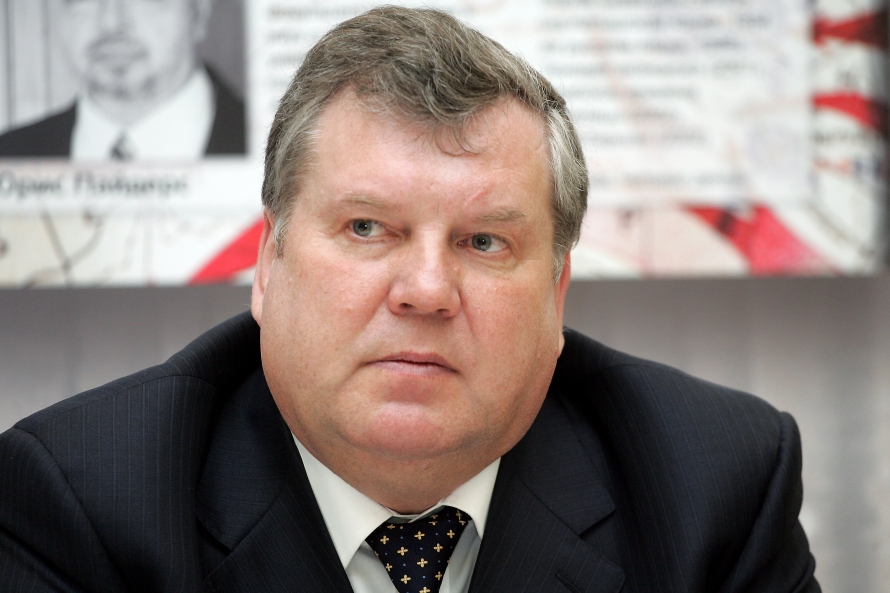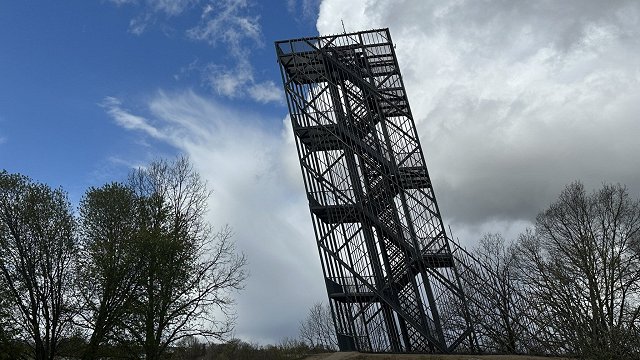In a lengthy analysis of the situation in Ukraine, the high-profile co-leader of Latvia's largest parliamentary party laid most of the blame for the strife at the door of western governments intent on weakening Russia both economically and militarily by removing Ukraine from its “sphere of influence”.
“The battle for Ukraine is an economical war for global influence in order to hamper the opportunities of Russia to create an economic system that in the future might be able to compete with the economic systems of the EU, India or China,” he claimed.
“Russia's global adversaries had to put forward that at least one of the territorial units constituting the former military and economic system of the USSR should not enter the Customs union, created by Russia. This failed in the case of Kazakhstan... Thus, the global adversaries of Russia had to achieve that Ukraine should not enter the economic system created by Russia,” Urbanovics said.
In comments likely to be seized on by his opponents, Urbanovics also said Russia had exercised restraint in its stance on the breakaway regions of eastern Ukraine and had not committed large military forces to the area.
“Russia did not take advantage of the referendums of Donetsk and Luhansk self-proclaimed republics and of their de facto independence achieved for the time being. The Republics of Donetsk and Luhansk did not obtain unilateral recognition from the Russian Government the way Abkhazia or South Ossetia did. Annexation of the Southeastern part of Ukraine or introduction of “peacekeepers” into Transnistria has not taken place. The Republics of Donetsk and Luhansk have not received really significant military assisatnce form Russsia,” Urbanovics said.
And in a novel argument, Urbanovics cited the example of Latvia's former Abrene district – annexed by the Soviet Union and never returned to Latvia – as partial justification for Russia's annexation of Crimea.
“In reality the setting of national borders along the borders of the former Soviet Republics in 1991 was not seen as fair, because the border alterations, that were made by Stalin and Khrushchev, were not taken into account. For the societies of Latvia and Estonia it was difficult to put up with the fact that, when they regained independence in 1991, their former territories remained outside the new borders [Abrene, Janilinna and Petseri, now Pitalovo, Ivangorod and Pechori], which were annexed to the Russian Federation in 1944-1945.
"Precisely in the same way the majority of the elite of the Russian Federation had not put up with the decision of the Communist Party of the USSR leadership, taken in 1954, to separate the region of the Crimea from the Russian Federation and to include it into the Ukrainian SSR,” Urbanovics said.
“Taking control over the Crimea was a desperate measure on the part of Russia in order to prevent economic and military imbalance in the contact zone of Southeastern Europe between NATO and Russia,” he stated.
In a remarkable aside, Urbanovics even claimed the assassination of Russian President Vladimir Putin was an option being considered by policymakers in the West.
"The idea of Putin's physical elimination, as far as I know, has been discussed in several Western forums, obtaining a preliminary confidentiality promise from the participants of the discussion," Urbanovics claimed.
































